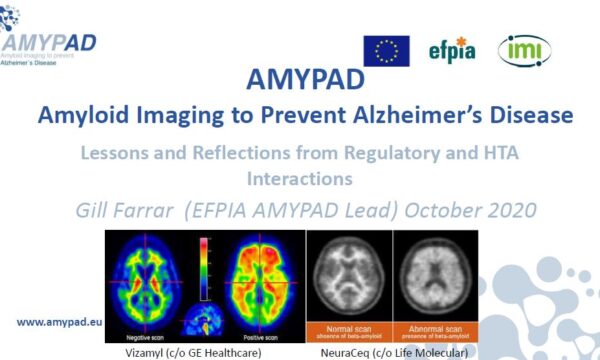On 16 October, the journal of Alzheimer’s & Dementia has published online the AMYPAD article titled “AMYPAD Diagnostic and Patient Management Study: Rationale and design”.
Abstract:
Introduction: Reimbursement of amyloid-PET is lagging due to the lack of definitive evidence on its clinical utility and cost-effectiveness. The Amyloid Imaging to Prevent Alzheimer’s Disease–Diagnostic and Patient Management Study (AMYPAD-DPMS) is designed to fill this gap.
Methods: AMYPAD-DPMS is a phase 4, multicenter, prospective, randomized controlled study. Nine hundred patients with subjective cognitive decline plus, mild cognitive impairment, and dementia possibly due to Alzheimer’s disease will be randomized to ARM1, amyloid-PET performed early in the diagnostic workup; ARM2, amyloid-PET performed after 8 months; and ARM3, amyloid-PET performed whenever the physician chooses to do so.
Endpoints: The primary endpoint is the difference between ARM1 and ARM2 in the proportion of patients receiving a very-high-confidence etiologic diagnosis after 3 months. Secondary endpoints address diagnosis and diagnostic confidence, diagnostic/therapeutic management, health economics and patient-related outcomes, and methods for image quantitation.
Expected Impacts: AMYPAD-DPMS will supply physicians and health care payers with real-world data to plan management decisions.



